It’s honestly simple. But we are in an age of “experts” teaching us things about cameras that are often false. It’s today’s video, and we’ll debunk all of that today.
#2. Aperture and sensors with lenses at the same focal length
Video #1 – Sensor size does NOT affect aperture value
In today video I used presets from Filmist, Silver and a a little Natural HDR. There a free mini versions of each. Also don’t miss my next Shadow Hackers LIVE workshop.
Equivalent F-Stop is not a real thing in Photography.
I made this video on a whim. I didn’t know it would be such a hot topic, and I’m meeting a lot of resistance. I did not fully see how much non-photography education is being promoted as fact.
When I started in the 90’s it was said that real photographers used medium format. But NO ONE said, a 50mm 1.4 on your Nikon was a 50mm f4 because of the medium format.
Aperture is a measure of light transmission. The exposure of an f1.4 lens on medium format, full frame, M43, or a phone is exactly the same! Equivalence was created for the internet and by influencers who want to sell you bigger lenses or sound smarter than you.
By their reasoning, I should be calling their full-frame f1.4 lens an F8 because of my 4×5 large format lenses that literally cover 4×5 inches. On that a 90mm is a 24mm wide-angle after all.
But no. There’s a darker theme here. Over the last decade, the industry has gone from master Photographers sharing true experience, to visual spectacles from YouTubers who shill gear to the unsuspecting, more than to learn or teach real photography methods.
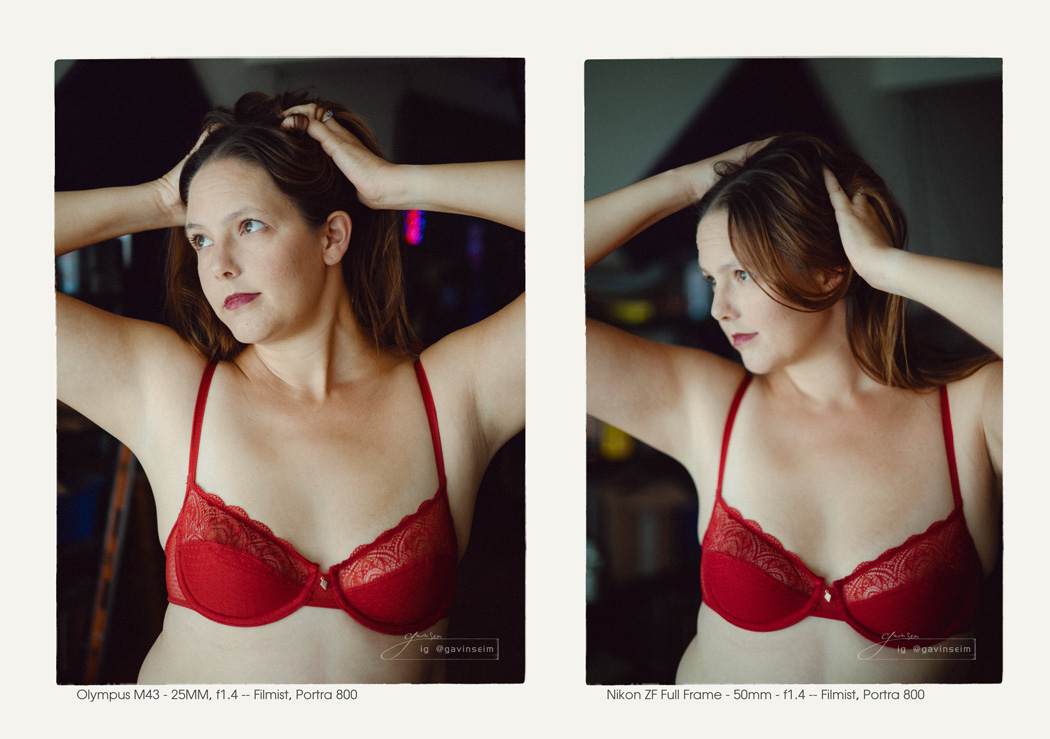
Sensor size changes, F stop does not
Some “experts” start copying and pasting math formulas that relate to how lenses are designed, not how they are used. The idea that a full frame gets more light because it’s a bigger lens covering more area.
No… The amount of light you get on the sensor and the corresponding exposure is exactly the same as we can see demonstrated in the video. On FF, M43, Large format or your cell phone.
Yes… You will get less bokeh on 25mm lens than you will on a 50m at the same aperture. That is a feature as much as it is a negative. The aperture is the same and there’s no Equivalent Aperture. That’s not a real photography term nor is bokeh is measured in fstops, They measure light transmission to the film or sensor based on the opening in relation to the focal distance.
Sensor sizes change things. But itg does not mean one is better…
We’ve been fed the idea that full frame is good and others are cropped. That’s not really true. Each sensor is a full frame of its intended size. You can choose what works best based on your needs. But they all get the same light.
We could spend one day talking about distance, opening size, circle of confusion, or how T stops are a bit more precise. But those are not what teach you photography or take good photos.
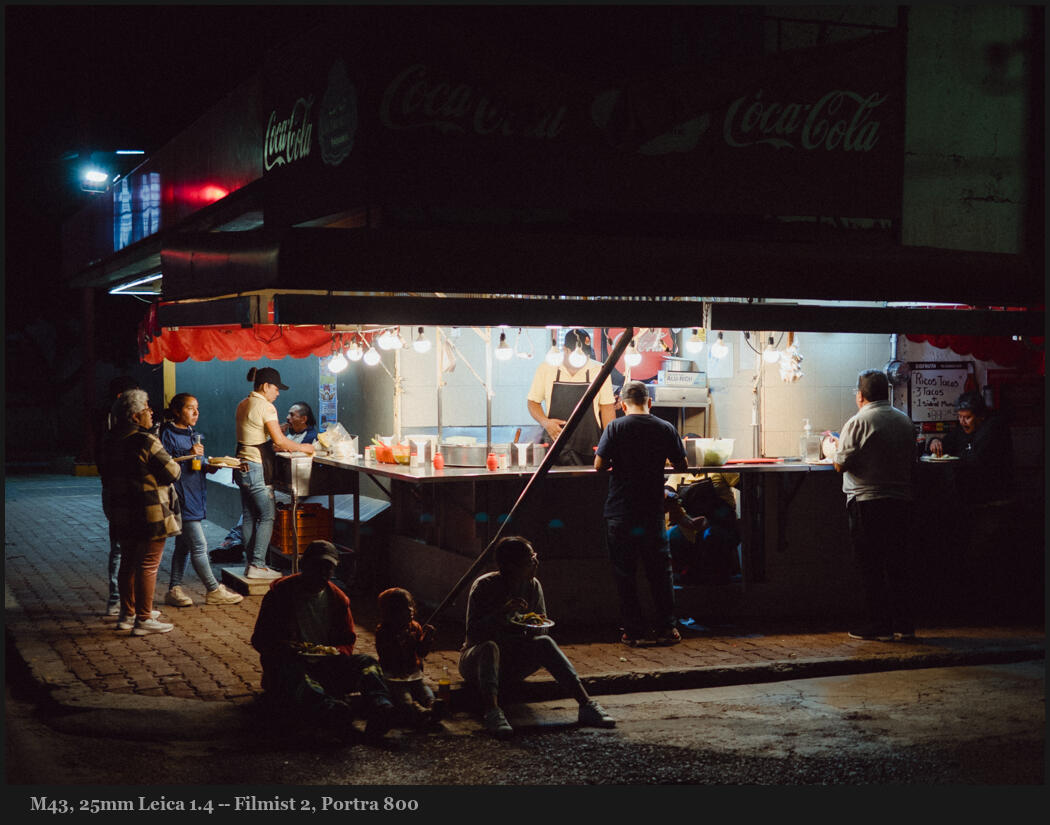
But there’s more light…
The idea of sensor crop is also new. We didnt call a hHasselblad a crop compared to a large fromat camera. They were designed at that natice size. I’ve been seeing this light gathering argument all over. It’s nonsense once you understand photography basics. Aperture numbers exist to provide a constant so we don’t need to think about complex math while taking a photo.
It’s like saying if you have a projector filling a 5-foot wall and another filling a 10-foot wall. Obviously, to cover the bigger wall with the SAME luma value light in each MM, you would need a brighter light, because its over a larger area. That’s why full frame lenses need to be bigger and to cover the same amount of light onto more area.
This makes zero difference in how aperture works since the light hitting each respective sensor space or film is the SAME.
I repeat: Exposure is EXACTLY the same on the sensor in relation to its size. This is the point of aperture numbers. They create a constant.
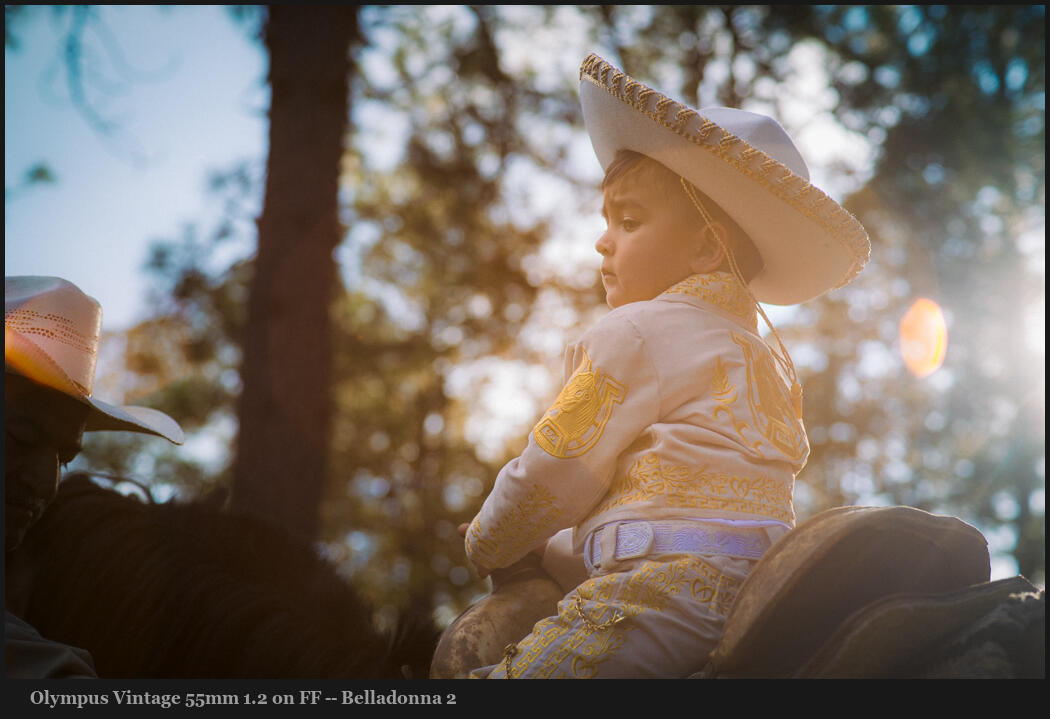
It’s not LESS bokeh. It’s MORE depth of field.
People often promote these smaller lenses or smaller sensors as worse. They are not. I’ve lost far more photos to out of focus from being wide open than from having enough bokeh.
Bigger sensors have less tightly packed pixels which in essence let them be more sensitive to light and often have less noise. Remember the exposure is exactly the same on both, but the larger sensor will often receive the light with less noise. No, this does not mean the aperture equivalence is real. It’s the sensor that’s different, not the aperture.
Smaller sensors, like on an M43 camera, can result in a smaller camera, but more importantly, smaller lenses. By a lot. This makes the camera much more portable, which means I take it more and use it more. The same quality lens also tends to cost less as it needs less glass.
But also because a crop sensor lens of the same field of view length is wide for example, my 25mm vs a 50mm on full. I get more depth of field. No still not aperture equivalence. It’s just that on the m43 I’m shooting at 25mm and get the DOF a 25mm lens affords. When I don’t want background blur, the M43 camera actually improves my hit rate and makes focusing easier.
Yes there may be a tad more noise in low light. Then again, maybe not because these small bodies often have better in-body stabilization. Yes they can have a tad more noise at high ISO. In reality, this rarely matters. Modern noise is more like grain and in most cases does not even need to me removed by any fancy tools. See my video on why you don’t need to de-noise.
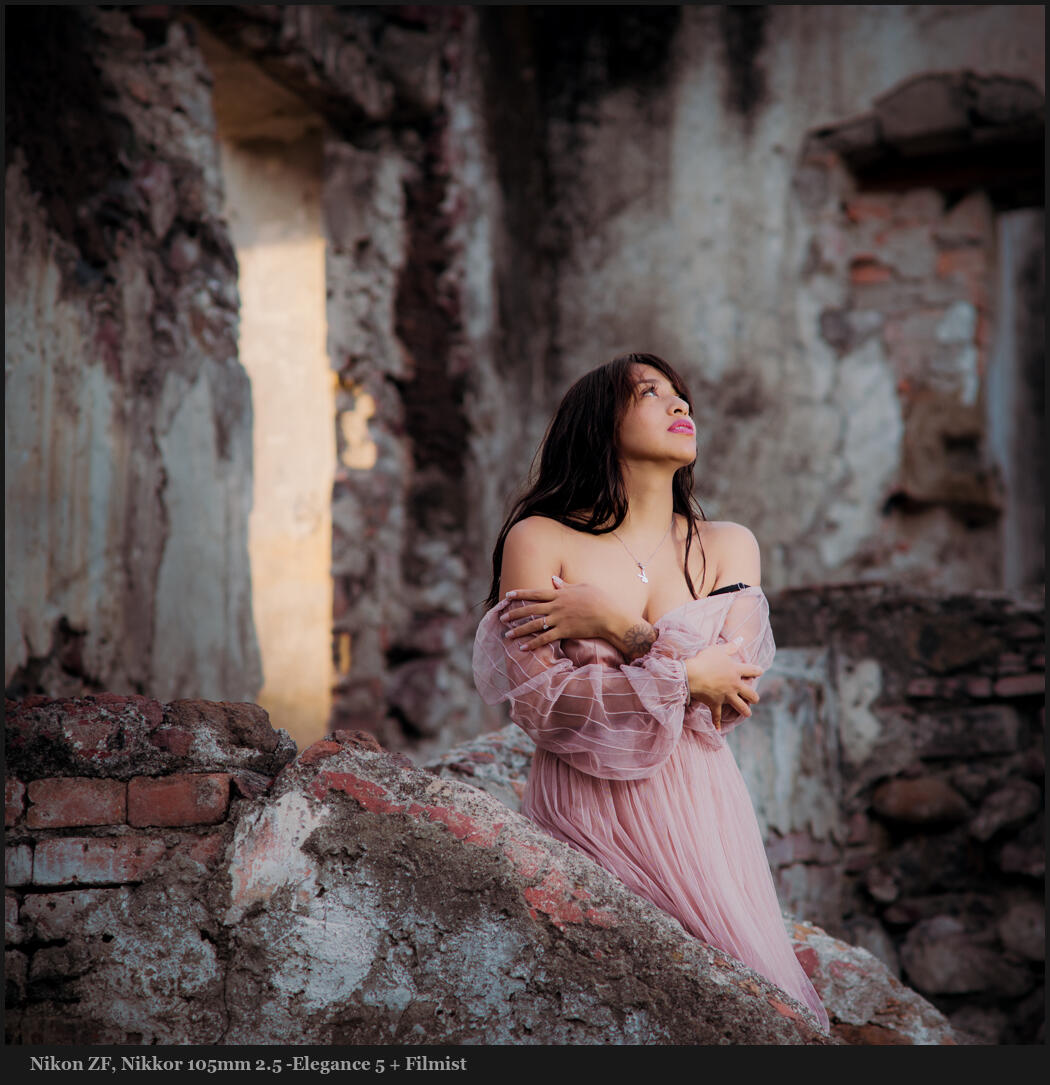
The dark side of photography
Yes there’s a point where images get a lot more limited like cell phone-sized sensors. But on pro and prosumer cameras, it’s just a preference and all formats have advantages.
Everything has a cost in photography just as in life. Everything is a trade-off.
I have a Nikon full frame because, yes sometimes i want a bit more blur. But the truth is I usually grab full frame because my beautiful vintage lenses fit at their intended field and I can even use them with an auto focus-adapter of view and I can mount anything to the Nikon.
But more often, I will take a small crop sensor camera. My results and just as good, only slightly different and I take it more because it handles so much easier.
I’m glad to have both. But if bigger was better, I would have to say we all need medium format. But it’s not so don’t let people selling you stuff convince you it is.
Complex spin repeated by influencers and then by people trying to sound smart to others has a darker side. Real photography education is being lost by pretend experts and people selling you new gear. The basics of photography are becoming a lost art, and we need to change that.
Gavin Seim
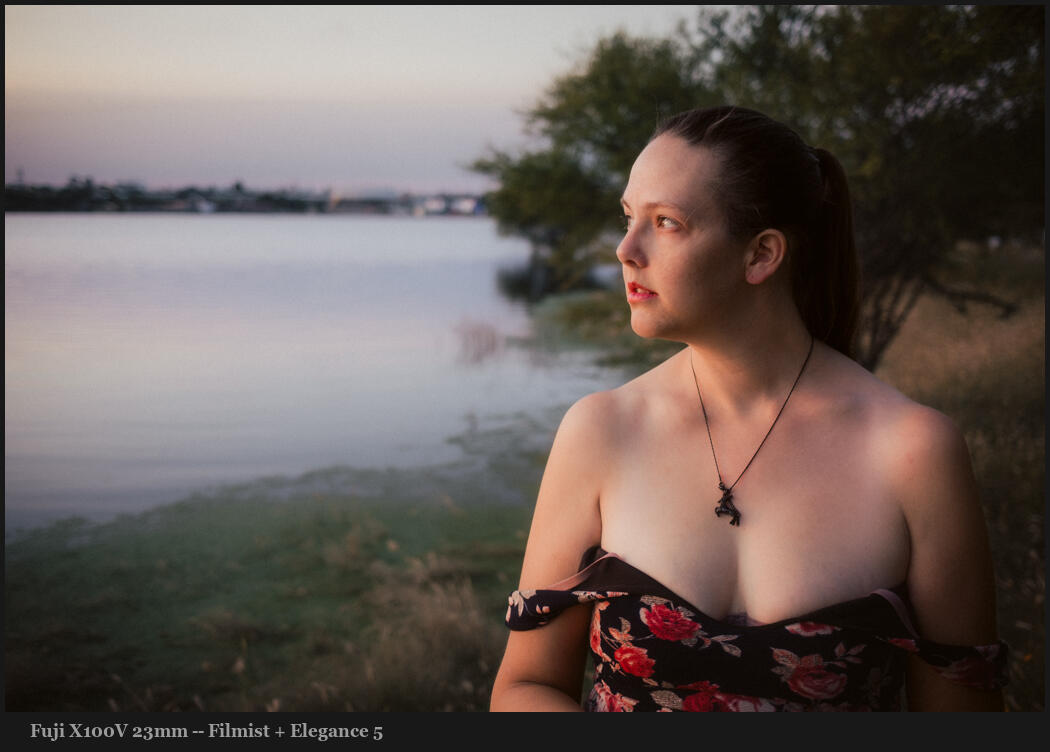

May I be so bold as to suggest that this is your best video – that I have seen, anyway.
That's only partly because I am, and always have be an Olympus fan boy (I had a Pen FT and still have my exquisite little OM1). But I love your simple, but devastating take-down of so-called experts who are surfing on manufacturers' publicity material, and not on hard-won 'experience'.
Keep up the good work!
Appreciate it. I too really enjoy Olympus stuff and have quite a few of them